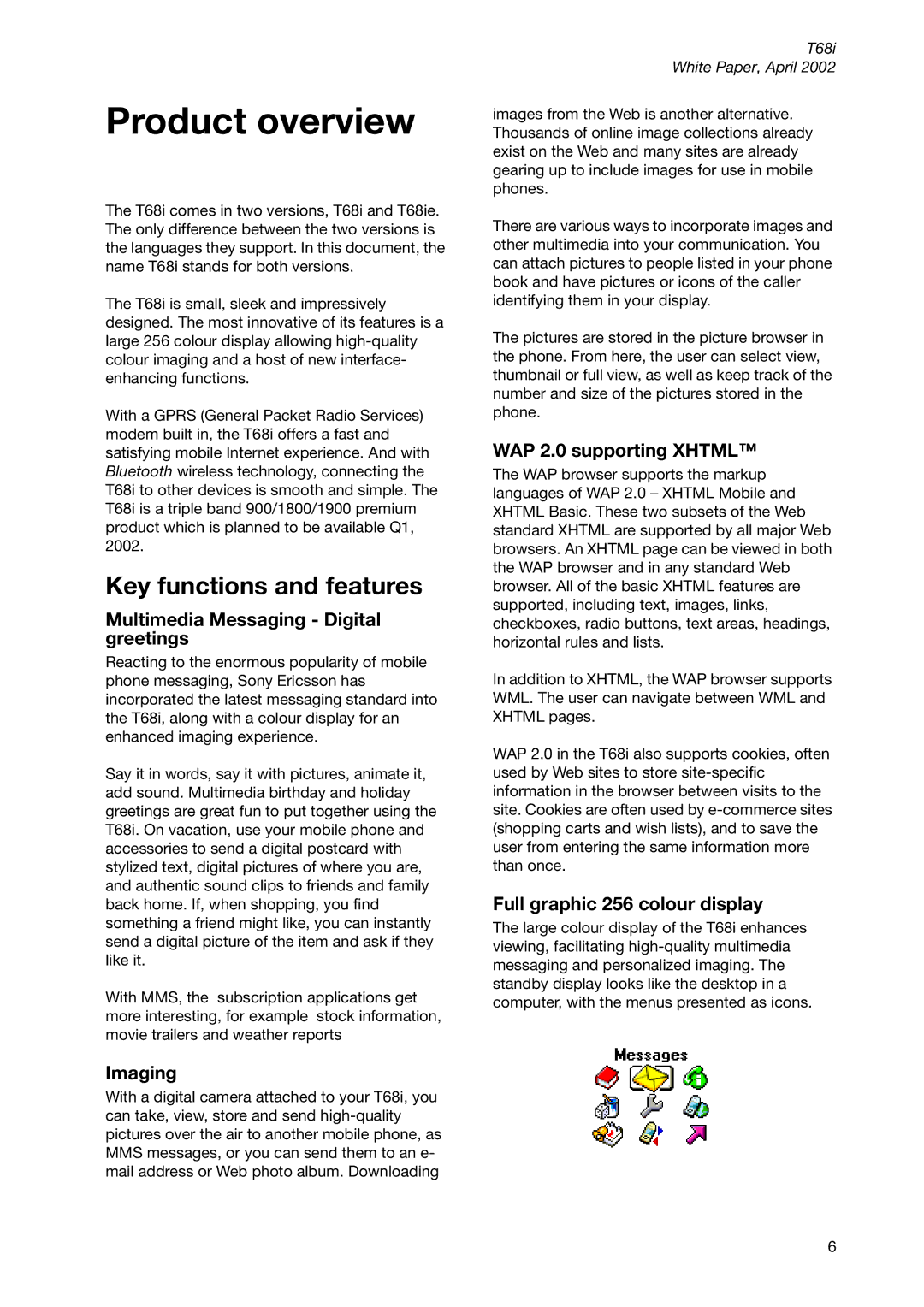
Product overview
The T68i comes in two versions, T68i and T68ie. The only difference between the two versions is the languages they support. In this document, the name T68i stands for both versions.
The T68i is small, sleek and impressively designed. The most innovative of its features is a large 256 colour display allowing
With a GPRS (General Packet Radio Services) modem built in, the T68i offers a fast and satisfying mobile Internet experience. And with Bluetooth wireless technology, connecting the T68i to other devices is smooth and simple. The T68i is a triple band 900/1800/1900 premium product which is planned to be available Q1, 2002.
Key functions and features
Multimedia Messaging - Digital greetings
Reacting to the enormous popularity of mobile phone messaging, Sony Ericsson has incorporated the latest messaging standard into the T68i, along with a colour display for an enhanced imaging experience.
Say it in words, say it with pictures, animate it, add sound. Multimedia birthday and holiday greetings are great fun to put together using the T68i. On vacation, use your mobile phone and accessories to send a digital postcard with stylized text, digital pictures of where you are, and authentic sound clips to friends and family back home. If, when shopping, you find something a friend might like, you can instantly send a digital picture of the item and ask if they like it.
With MMS, the subscription applications get more interesting, for example stock information, movie trailers and weather reports
Imaging
With a digital camera attached to your T68i, you can take, view, store and send
T68i
White Paper, April 2002
images from the Web is another alternative. Thousands of online image collections already exist on the Web and many sites are already gearing up to include images for use in mobile phones.
There are various ways to incorporate images and other multimedia into your communication. You can attach pictures to people listed in your phone book and have pictures or icons of the caller identifying them in your display.
The pictures are stored in the picture browser in the phone. From here, the user can select view, thumbnail or full view, as well as keep track of the number and size of the pictures stored in the phone.
WAP 2.0 supporting XHTML™
The WAP browser supports the markup languages of WAP 2.0 – XHTML Mobile and XHTML Basic. These two subsets of the Web standard XHTML are supported by all major Web browsers. An XHTML page can be viewed in both the WAP browser and in any standard Web browser. All of the basic XHTML features are supported, including text, images, links, checkboxes, radio buttons, text areas, headings, horizontal rules and lists.
In addition to XHTML, the WAP browser supports WML. The user can navigate between WML and XHTML pages.
WAP 2.0 in the T68i also supports cookies, often used by Web sites to store
Full graphic 256 colour display
The large colour display of the T68i enhances viewing, facilitating
6
